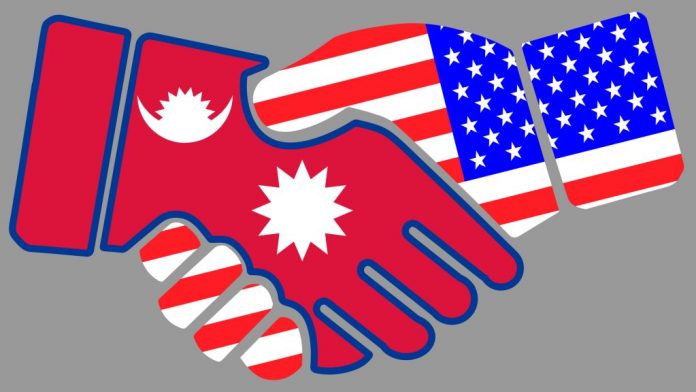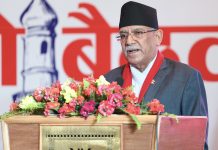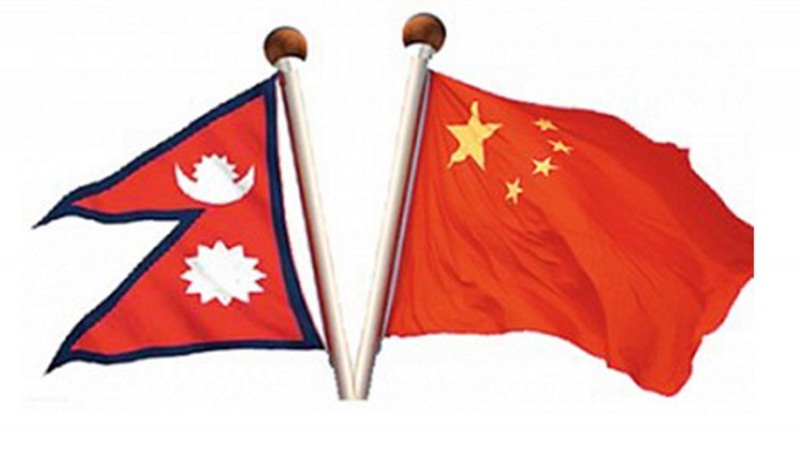.SHRADHA ARJYAL JOSHI
In 2012 when Baburam Bhattrai was the prime minister, Nepal had then applied for the Millennium Challenge Corporation (MCC) grant, its signing took a further five years, and got endorsed in 2017. After its affirmation in February 2022, it has left the country divided into two poles. It got approval only in the month of February 2022 from the House of Representatives with a condition that the controversial points will be overlooked and then revised which will not affect the sovereignty of the country. On the day of ratifying MCC, the political battle continued to an extreme, clashes with police on the streets disrupted the daily schedule, and riots took the center stage as a result the whole city was ground to a halt. This all came when there was a national debate citing that certain provisions in the MCC agreement were against Nepal’s sovereignty, and it ignored the constitutional provisions. Many also accused that the MCC was merely financial propaganda to have greater American influence in Nepal. All of these mattered as it was somewhere closely monitored by the northern ally, as the country cannot merely deny the geopolitical presence with China.
After the Second World War, providing aid to various countries was the core part of America’s foreign policy. There was a dramatic change in aid policy after the end of the Soviet Union, where aid was rather promoted as an economic and social transformational tool. Since then, there has been the establishment of numerous international non-governmental organizations that guides the national NGOs. Thus aid are channelized under the working of NGOs and INGOs. After September 11, 2001 attacks, president George Bush formalized the MCC as America’s new aid agency.
The MCC debate still remains controversial in Nepal. Since its ratification, the presence of American state officials has increased in recent times. In this scenario, it becomes necessary that the country remains transparent and accountable to its citizens in its working methods. Nepal’s involvement in the state partnership program has created a new buzz in Nepalese politics. The opposition party drew serious attention in the parliament on Tuesday on the signing of America’s State Partnership Program (SPP), however, a statement was issued by the Nepalese Army clarifying that it will not be signing any deal against Nepal’s non-aligned foreign policy, and will maintain balance with its allies, sensing its sensible geographic position. Further, foreign minister Narayan Khadka told the Parliament that the SPP has nothing to do with the military deals.
The real agreement between Nepal and US regarding SPP was leaked a few days back and got great hype. Manual P. Micaller Jr., Charge’d’Affaires at the US clarified that SPP is not a military alliance, and it is not a China containment tool.
The SPP is basically an exchange program between America’s National Guard and partner countries that have been in existence for the past 25 years and have 90 countries in its partnership. The US national guard domestically supports the US first responders in dealing with natural disasters like earthquakes, floods, and fires. It mainly includes humanitarian and disaster readiness which the National Guard is trained to address. Micaller Jr, stated that Nepal had applied to join SPP in 2015 and 2017 before the US accepted its request in 2019. Further, he clarified that there was no connection between MCC and SPP.
Should Nepal get involved in SPP?
For a country to be internationally involved in a state partnership program needs to figure out whether it needs the support right then or not. The same thing applies to SPP, as Nepal needs to know who gets more benefits. Nepal needs to carefully analyze various aspects before it gets involved in any military alliance. In the current scenario, it can be analyzed that Nepal does not need any military alliance. With its Indo-Pacific Strategy, the United States looks to establish hegemony in the region, safeguarding its global interest. Security remains at the core front of any US alliances.
Nepal occupies a prime geostrategic location in South Asia. China has been increasing its influence in Nepal for some time. With the amendment of MCC, the United States is also one important partner in developmental activities. China wouldn’t want an increased presence of the US in Nepal and similar to that, the US has been negative over Chinese involvement expressing that it is inimical towards the sovereignty of the country. On the other hand, India wants to keep its presence and dominate Nepal with its stringent foreign policy, hence taking leverage for decades.
Leaders in the country have time and again shown immaturity in establishing the country’s accountability in front of the international community. Our politicians have not been able to strengthen foreign policies. It is so because international relations have always been neglected over political interest ultimately leading to failure in diplomacy. There is a need to upgrade our foreign policy and make diplomatic ties accountable. Foreign powers should not be allowed to intervene in the country’s internal matters. It has become a serious concern for Nepal to maintain a balance between big powers like China and US.














